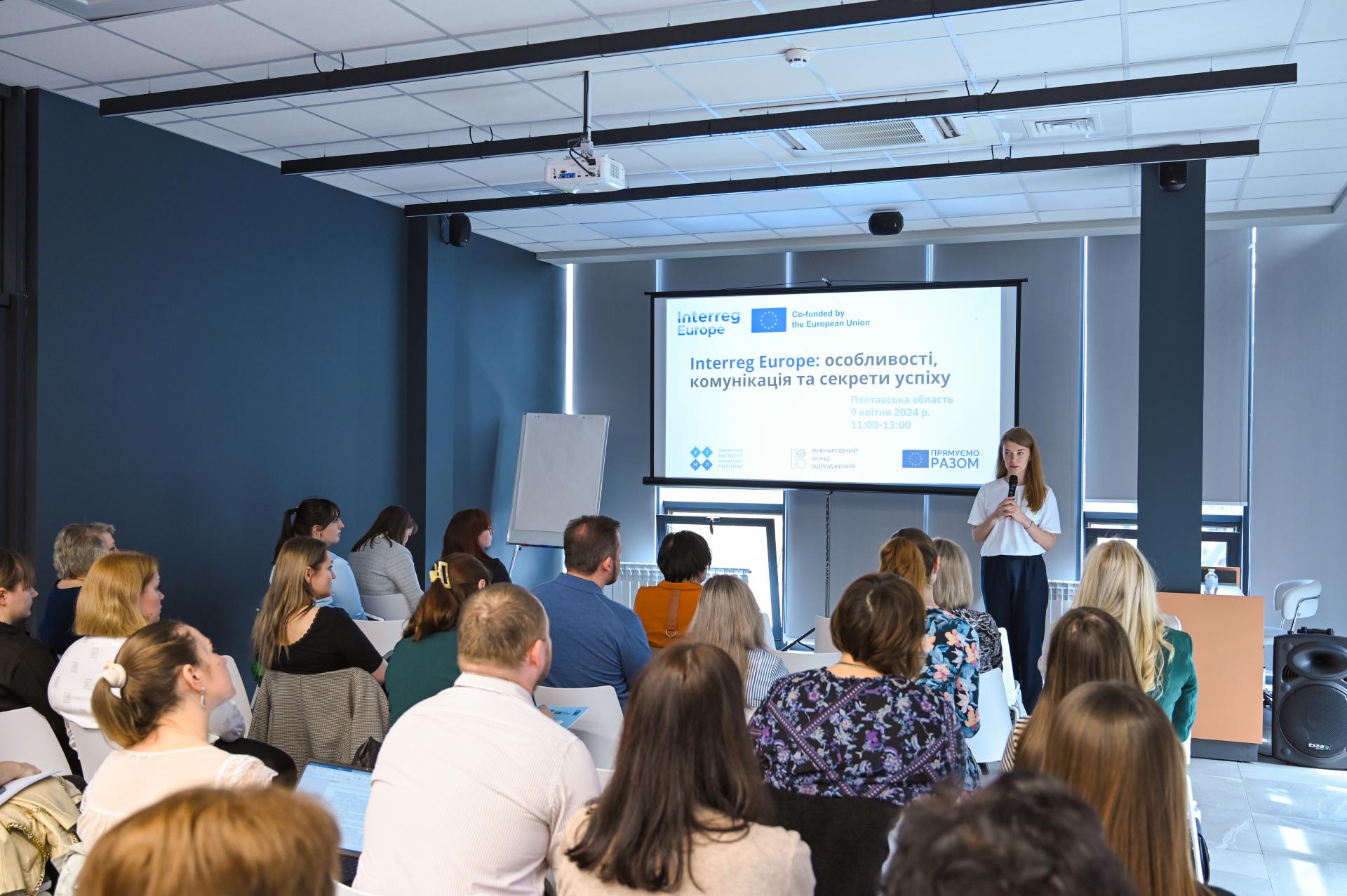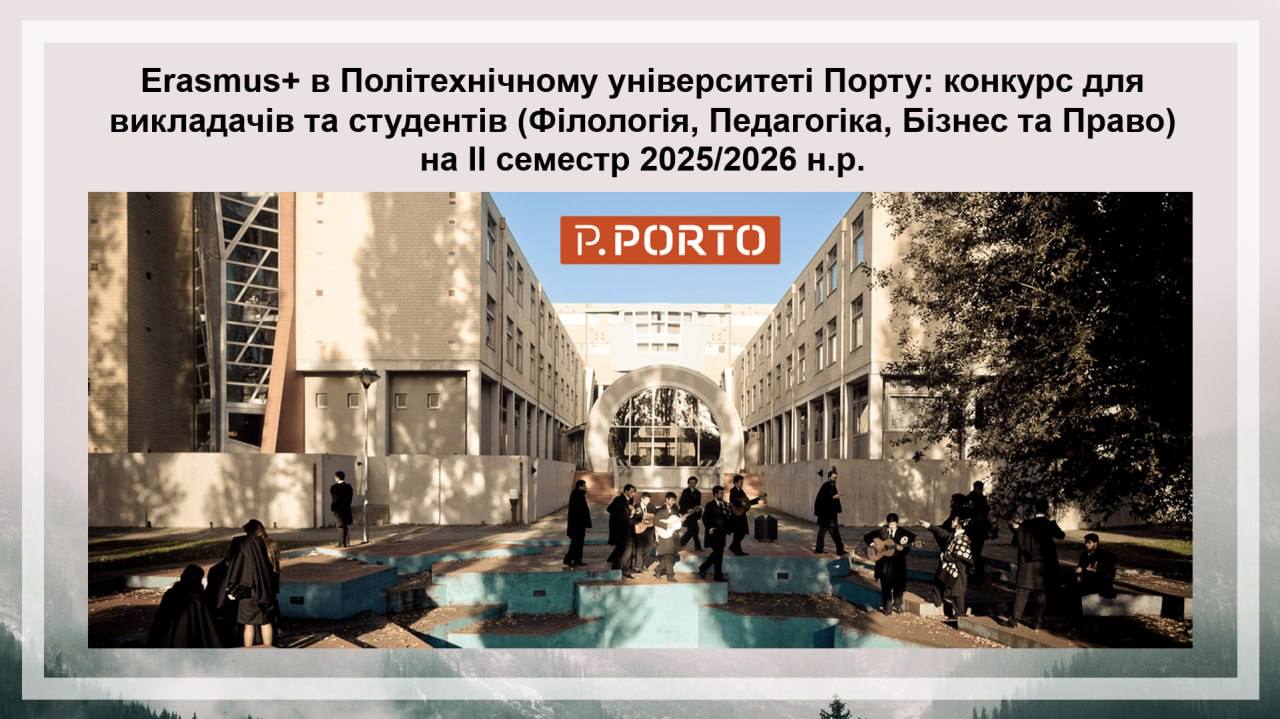The information event was opened with welcoming speeches by the Acting Director of the Department of Economic Development, Trade and Investment Attraction of the Poltava Regional Military Administration Yaroslav Kasianov, the representative of the Secretariat of the Cabinet of Ministers of Ukraine Yana Romaniuk and the Director of the Ukrainian Institute of International Policy Nadiia Afanasieva.
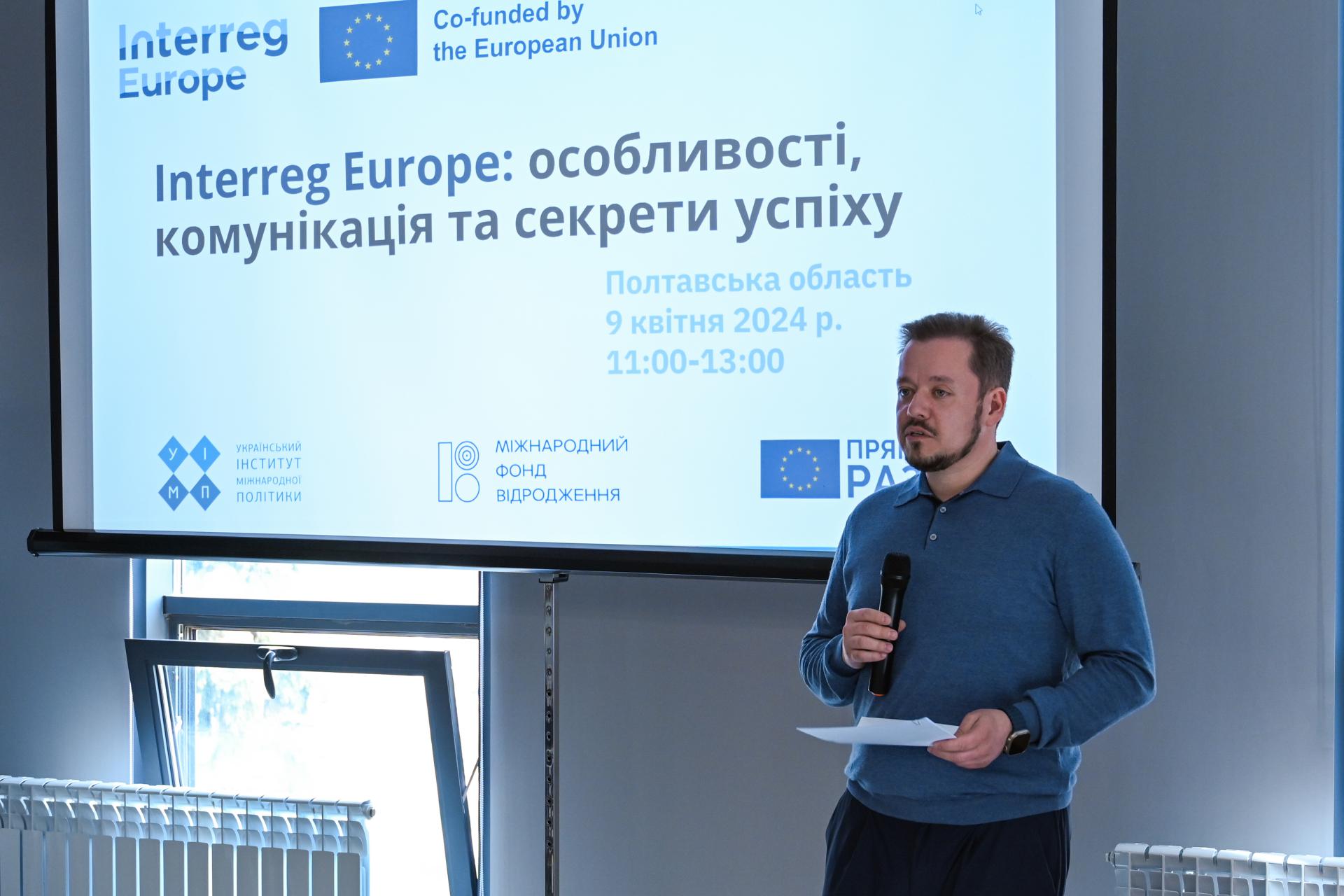
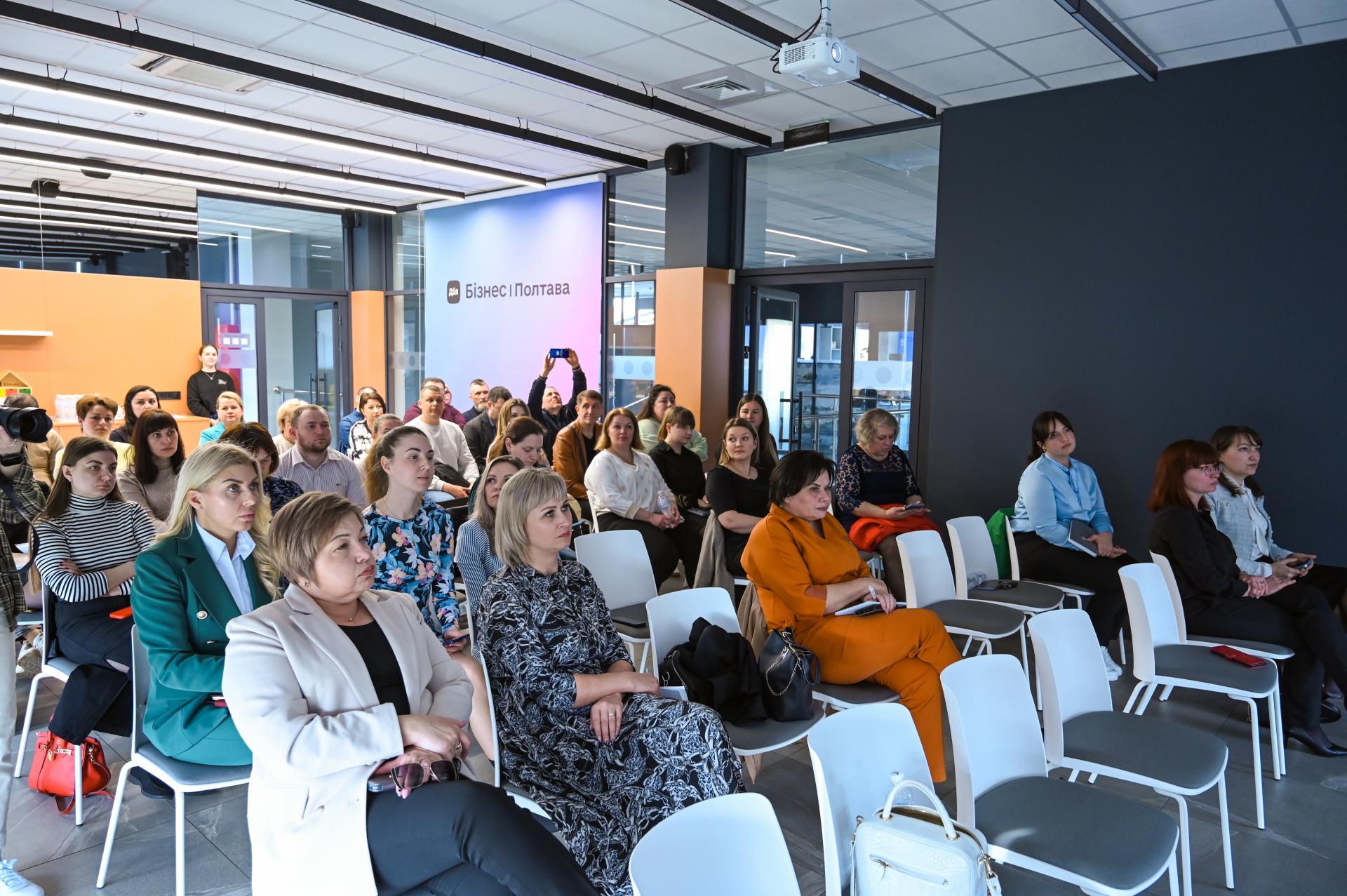
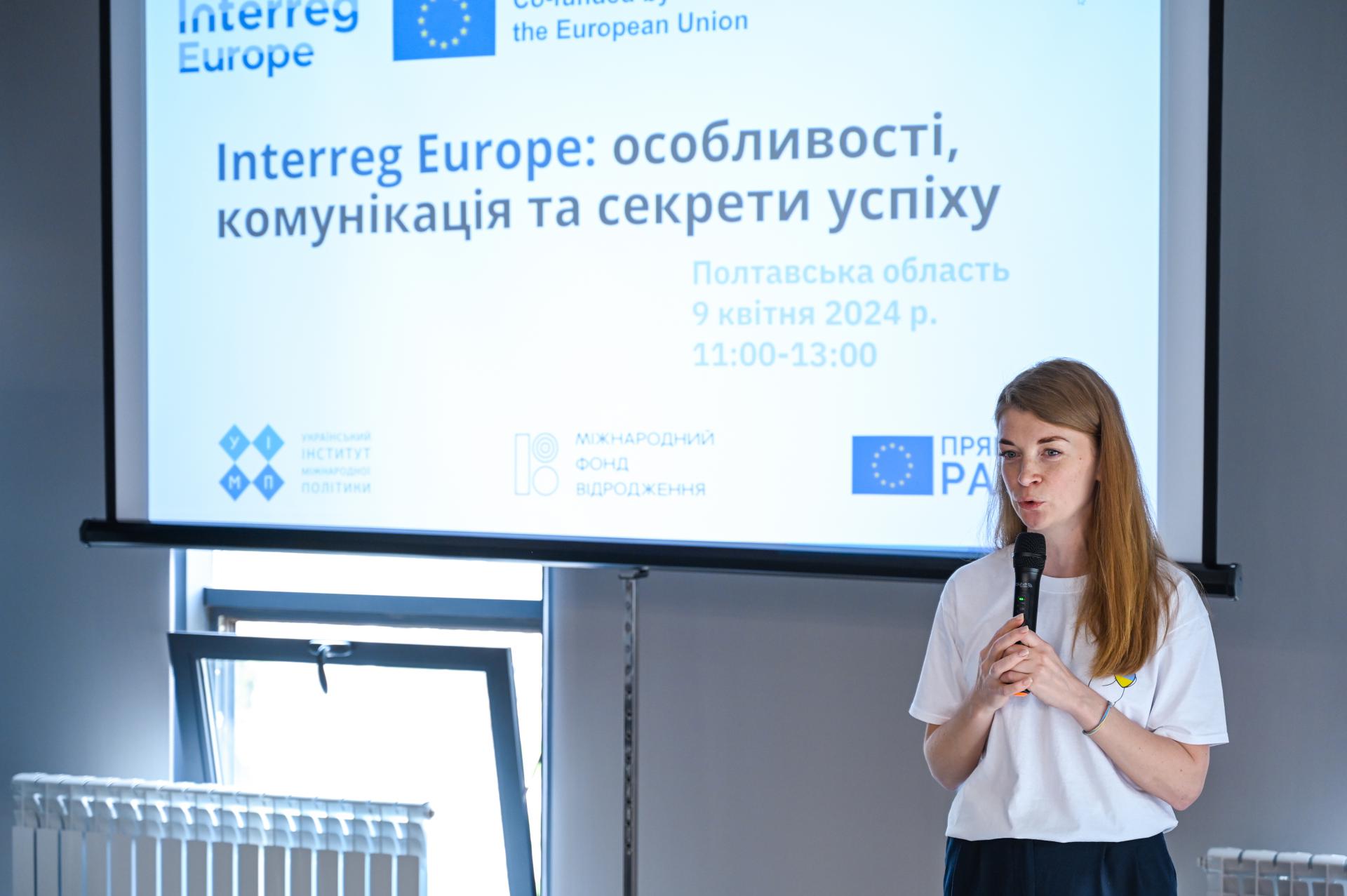
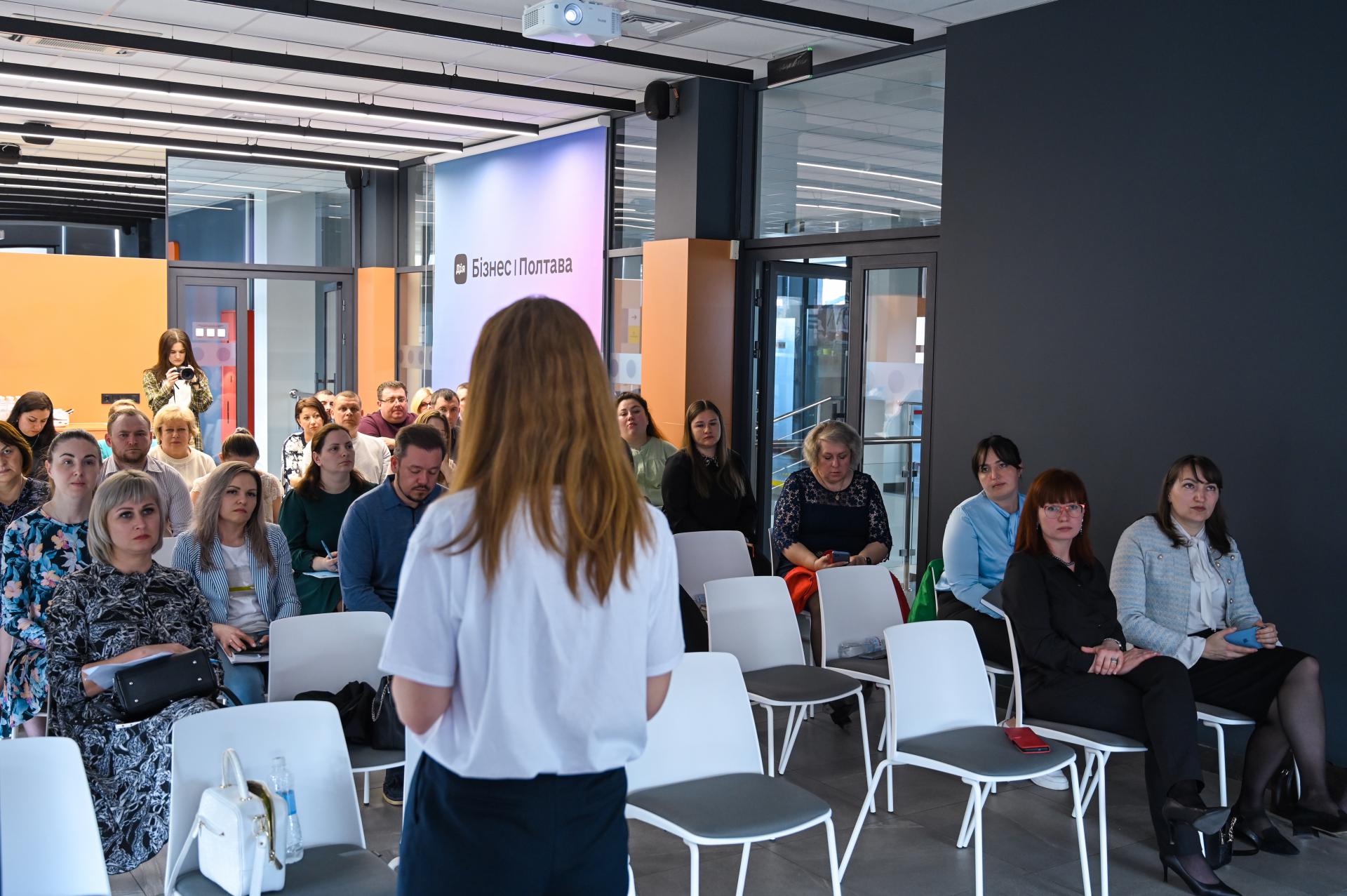
“Since 1 January 2024, the EU interregional cooperation programmes Interreg Europe and URBACT have become available to Ukrainian communities. These are new opportunities to improve the capacity of communities. National University “Yuri Kondratyuk Poltava Polytechnic” is a member of the Association of European Universities, became the first higher education institution in Ukraine to receive the prestigious status of a member of the Association of European Schools of Planning (AESOP), is now a leader in the implementation of the thermal modernisation project and has unique cases of cooperation with European partners. Having experience in cooperation with the communities of the Poltava region, our advanced university is interested in new international partnerships and is ready to cooperate with communities to implement projects that will promote development,” – commented First Vice-Rector Olena Filonych.

The first presentation was on the EU Interreg Europe programme, its features, communications within the programme, and the secrets of success.
Interreg Europe is the EU’s interregional cooperation programme, launched in 2002, which aims to improve policy through the exchange of experience, innovative approaches and capacity building, and is primarily aimed at policy makers. The key benefits of this programme are cooperation, best practices and experience exchange.
In June 2023, the Ukrainian side started the procedure for joining the Interreg Europe programme funded by the European Union, in October 2023, Ukraine confirmed its intention to join the programme, and in December 2023, the European Commission approved Ukraine’s accession to the Interreg Europe interregional cooperation programme.
The programme’s budget until 2027 is €379 million. The programme involves representatives of cities and regions from 36 European countries, 27 EU member states, Switzerland, and, starting from the new year, Ukraine, Moldova, Bosnia and Herzegovina, Albania, Serbia, North Macedonia and Montenegro. As part of the programme, communities can participate in competitions for experience exchange projects with European partners.
The priorities of the Interreg Europe programme, according to which the budget is allocated, are “Smart Europe”, “Green Europe”, “United Europe”, “Socially Responsible Europe”, “Europe Closer to Citizens”, and “Better Regional Governance”.
The programme covers 80% of the project cost for communities and regions and 70% for NGOs. The average size of a consortium of partners is 7-10 partners from different European countries.
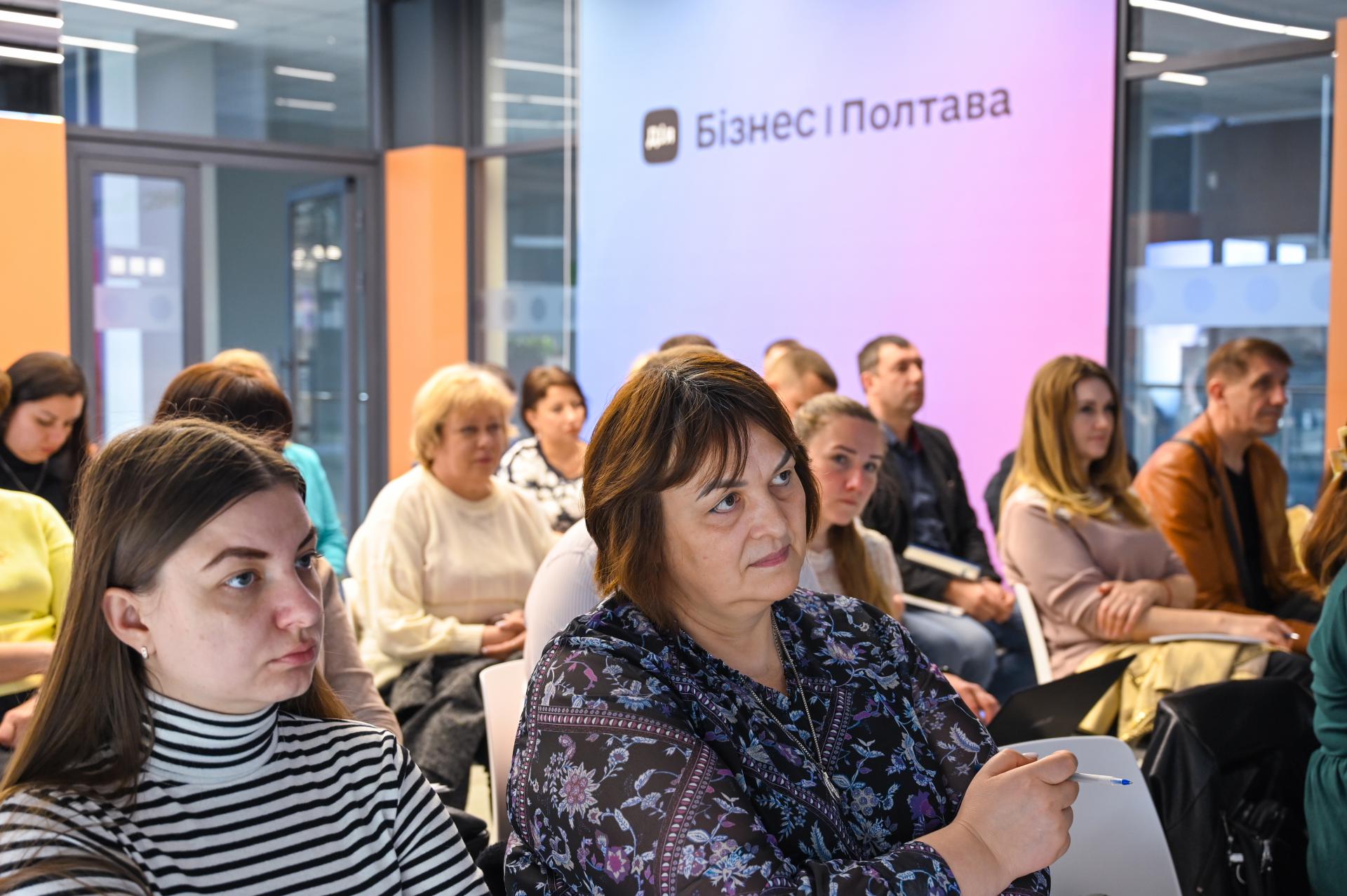
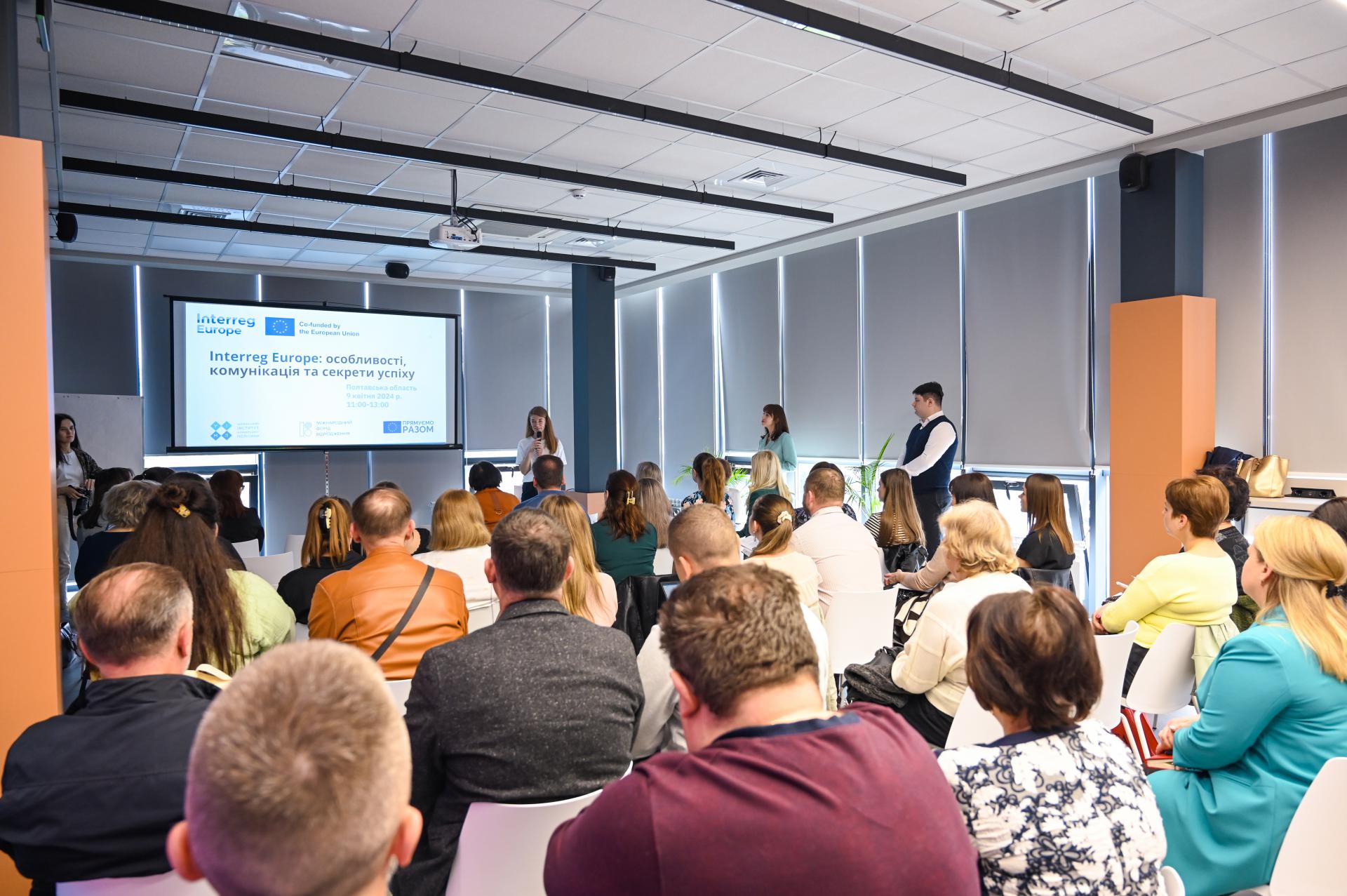
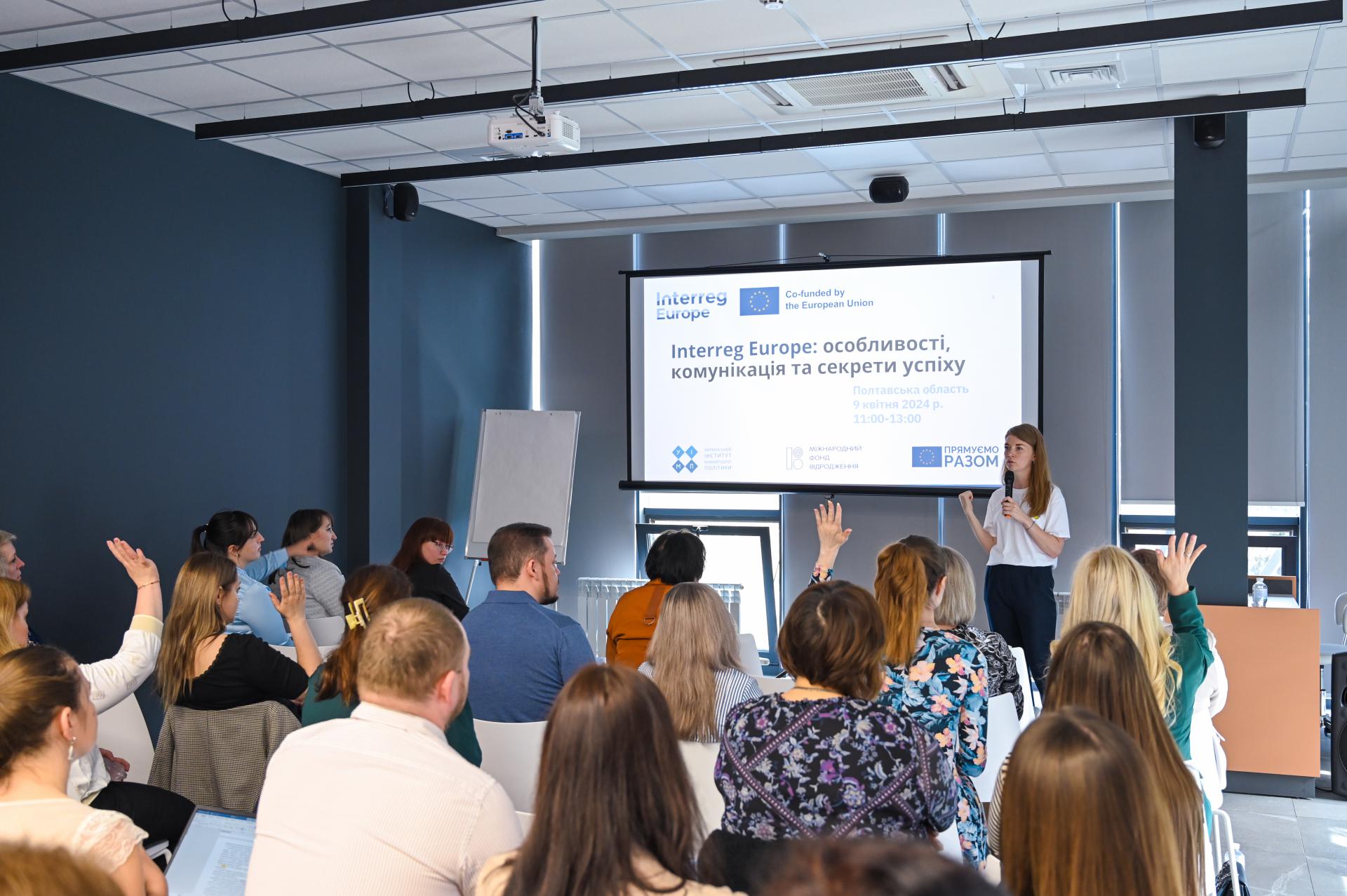
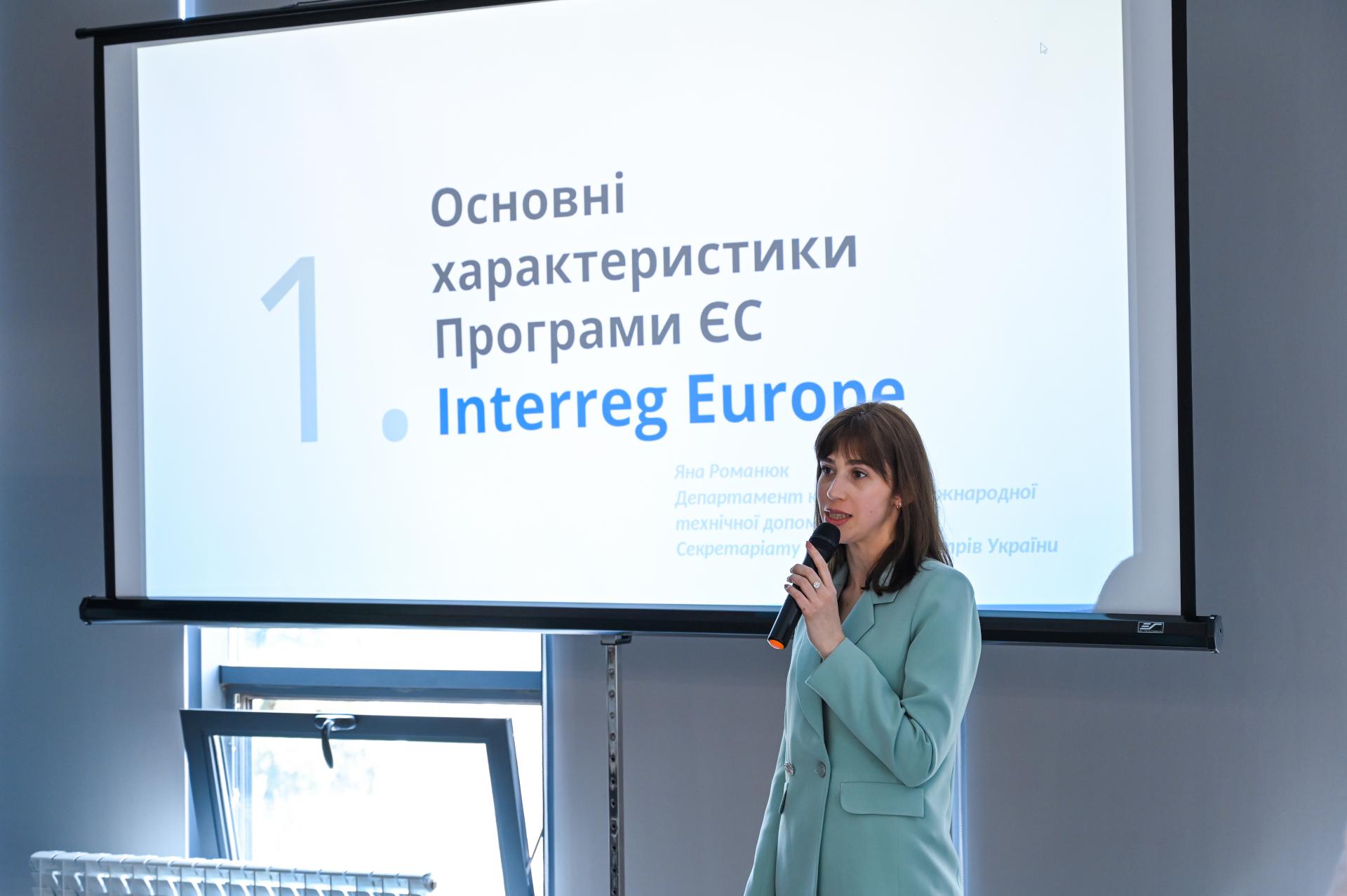

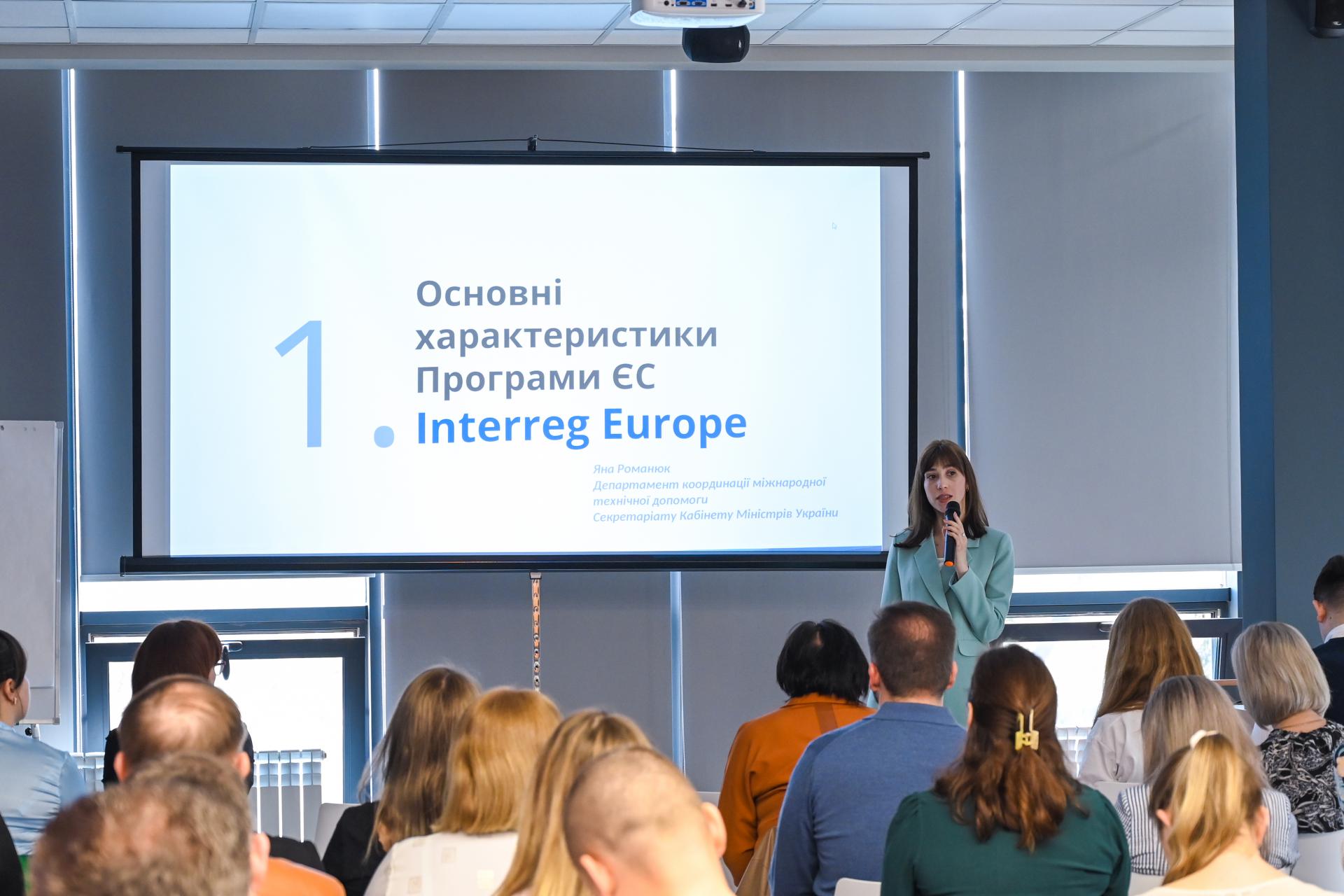
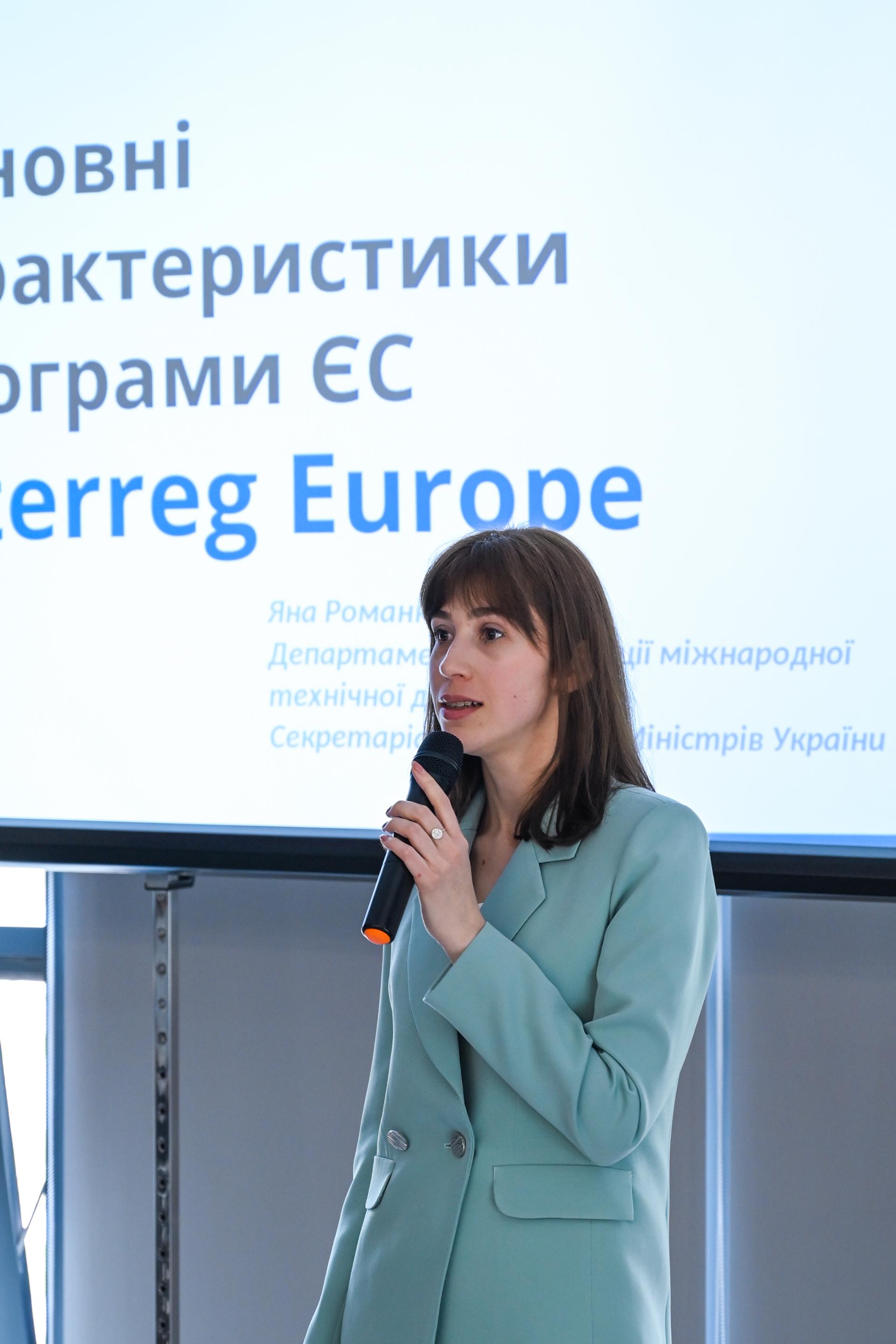
The representative of the Secretariat of the Cabinet of Ministers of Ukraine Yana Romaniuk and Nadiia Afanasieva from the Ukrainian Institute of International Policy introduced the main characteristics of the programme and opportunities for potential participants of Interreg Europe as well as provided effective advice to potential participants on how to look for partners, how to decide on the project topic, what are the conditions of participation, etc.
In particular, the participants were told in detail about the 4 areas of the Interreg programme, each of which has its own scope and objectives: cross-border (64 programmes, 6.7 billion euros), transnational (13 programmes, 2.3 billion euros), interregional (4 programmes, 560 million euros: Urbact, Interact, Espon), outermost regions (5 areas, 330 million euros).
Representative of the Ukrainian Institute of International Policy Mykhailo Omelchenko gave examples of successful Interreg Europe projects and spoke about opportunities for Ukrainian partners.
Among the successful cases, the participants considered the “2LIFES” circular economy project, which aims to recycle old concrete for bitumen production, the “GREEN SOPHIA” pilot project of school and municipal farming, and the “BRIDGES” project, which aims to overcome shortcomings in the competence infrastructure and stimulate employment growth in the regions, aimed at developing the bioeconomy and entrepreneurship by engaging local innovation and research centres to create commercially viable technological solutions, as well as the “ecoRIS3” project aimed at business and higher education cooperation to support local and regional innovation ecosystems, which aims to develop the bioeconomy and entrepreneurship by engaging local innovation and research centres to create commercially viable technological solutions. The participants discussed in detail the specifics of the “InnovaSUMP: promoting cycling in Cyprus” project.
“The “Council for the Promotion of Cycling” project (Nicosia, Greece) is being implemented at the institutional, legislative, value, educational and cultural levels. Resources: 105 thousand euros for an educational campaign. Main achievements: legislative regulation of cycling. While it is hard for some Western EU and Scandinavian countries to imagine that other countries do not have bicycle legislation, this is true for many in Europe.
The “Council for the Promotion of Cycling” brings together different governmental organisations, allowing them to take a holistic approach to promoting cycling in Nicosia. The Council is able to submit its decisions and proposals to the Parliament. In addition, the Council should be informed about every project related to cycling (e.g. designing new cycling routes) and participate in the final decision-making process.
Soon, the Council will be able to extend its responsibility to new road users: electric scooters and electric skateboards, which are gaining popularity in European cities but create confusion on the roads in the absence of clear rules for them,” – noted Mykhailo Omelchenko.
In the second part of the presentation, the participants discussed the features of the URBACT programme – its main characteristics and opportunities for potential participants.
URBACT is a European programme of territorial cooperation that promotes sustainable urban development in cities, launched in 2002. To date, more than 1,000 cities have participated in the programme, and it has more than 150 networks. The aim of the project is to promote integrated sustainable urban development through cooperation.
In June 2023, Ukraine began the procedure for joining the URBACT programme, confirmed its intentions to join in November 2023, and in December 2023, the European Commission approved Ukraine’s accession to the URBACT programme.
URBACT has 3 focus areas: networking between cities and stakeholders, capacity building through communities of practice and learning, and knowledge and best practices sharing through knowledge absorption and dissemination.
The thematic areas of the programme are culture, digitalisation, circular economy, environment, jobs, demography and living standards.
The total budget of the programme is EUR 110 million. EU member states and partner countries participate in the programme: Norway and Switzerland, as well as EU candidate countries: Ukraine, Moldova, Bosnia and Herzegovina, Serbia, Montenegro, Albania, and North Macedonia. The programme has 3 areas of activity: networking, capacity building, communication and knowledge exchange.
The programme is open to: cities, urban territorial communities, enterprises, institutions and organisations (owned by the respective urban territorial communities), associations of local governments. Programme participants can exchange and learn from each other, share their experience with others, and participate in monitoring activities and communications within the EU.
It should be recalled that Poltava Polytechnic teaches spatial development of communities, the first regional scientific and practical seminar on spatial planning in Ukrainian higher education institutions was held at the university, and a scientist and a postgraduate student of the university took part in a working meeting on the development of the Opishnia community strategy.
Earlier, Poltava Polytechnic became a leader in the implementation of the European project of comprehensive energy-efficient renovation of campuses, Poltava Polytechnic started cooperation with Warsaw University of Technology and Siemens in a new technological project, and the university became a partner of the project “Ukraine Digital: Ensuring Academic Success in Times of Crisis” on the digitalisation of educational programmes.
Recently, the anniversary of the Gender Centre of Poltava Polytechnic was celebrated with the legal awareness conference “The Right to Be Yourself”, and the head of UN Women in Ukraine, Sabine Fraser Günes, gave an open lecture to the university community.
Media Center of
National University “Yuri Kondratyuk Poltava Polytechnic”
